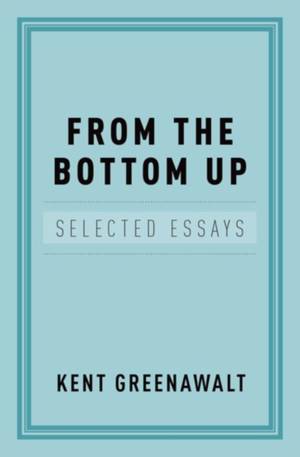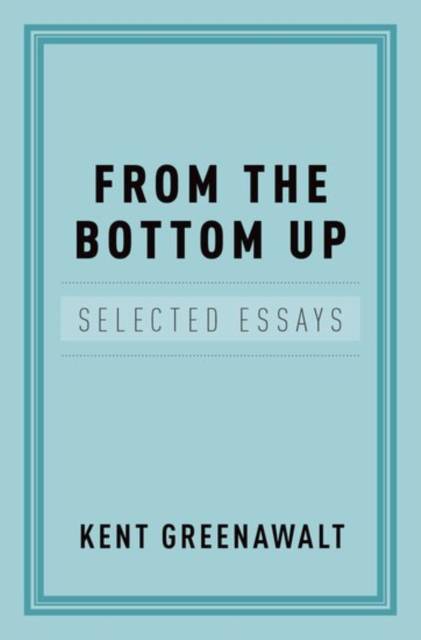
- Afhalen na 1 uur in een winkel met voorraad
- Gratis thuislevering in België vanaf € 30
- Ruim aanbod met 7 miljoen producten
- Afhalen na 1 uur in een winkel met voorraad
- Gratis thuislevering in België vanaf € 30
- Ruim aanbod met 7 miljoen producten
Zoeken
Omschrijving
Kent Greenawalt's From the Bottom Up constitutes a collection of articles and essays written over the last five decades of his career. They cover a wide range of topics, many of which address ties between political and moral philosophy and what the law does and should provide. A broad general theme is that in all these domains, what really is the wisest approach to difficult circumstances often depends on the particular issues involved and their context. Both judges and scholars too often rely on abstract general formulations to provide answers. A notable example in political philosophy was the suggestion of the great and careful scholar, John Rawls, that laws should be based exclusively on public reason. The essays explain that given uncertainty of what people perceive as the line between public reason and their religion convictions, the inability of public reason to resolve some difficulty questions, such as what we owe to higher animals, and the feeling of many that their religious understanding should count, urging exclusive reliance on public reason is not a viable approach. Other essays show similar problems with asserted bases for legal interpretations and the content of provisions such as the First Amendment.
Specificaties
Betrokkenen
- Auteur(s):
- Uitgeverij:
Inhoud
- Aantal bladzijden:
- 538
- Taal:
- Engels
Eigenschappen
- Productcode (EAN):
- 9780199756162
- Verschijningsdatum:
- 31/05/2016
- Uitvoering:
- Hardcover
- Formaat:
- Genaaid
- Afmetingen:
- 155 mm x 239 mm
- Gewicht:
- 820 g

Alleen bij Standaard Boekhandel
+ 281 punten op je klantenkaart van Standaard Boekhandel
Beoordelingen
We publiceren alleen reviews die voldoen aan de voorwaarden voor reviews. Bekijk onze voorwaarden voor reviews.











